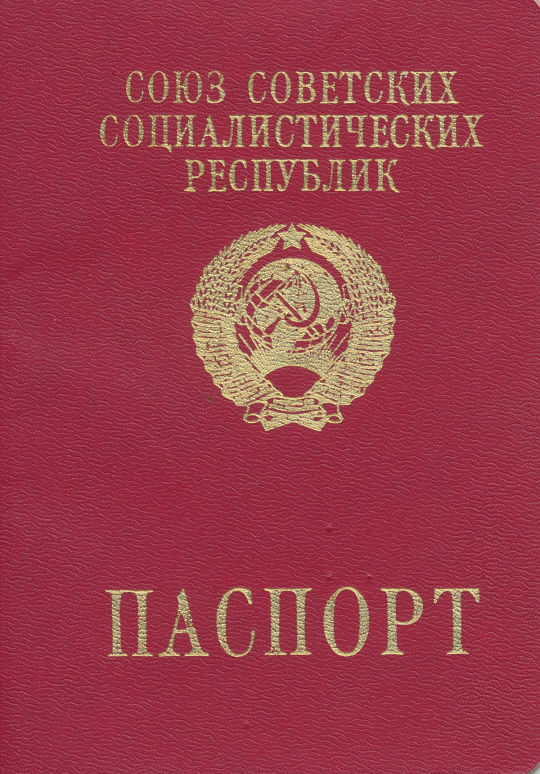Photo









A non-exhaustive list of gymnasts whose ages are known to be falsified.
“Dick does she look 14 years old to you? […] I tell you we have a story going around the gymnastics community that is pretty traditional that when a young Romanian girl is asked her age she looks to her coach for the answer.” –Bart Conner, 1985 American Cup
Since Wikipedia can’t be trusted to be right for a lot of details of gymnasts careers…
Olga Bicherova
Born in either 1967 or 1968, during Bicherova’s elite career the age requirement was that you had to turn 15 in the year of competition. Either birthdate would have made her too young for the 1981 World Championships where she won two gold medals, one in the all around and one with the team. If you take the 1967 birthdate she could have been age eligible for the 1982 World Cup where she won 5 medals, 3 of them gold except that one of the requirements of the World Cup at that time was previous participation in the World Championships. [In fairness to Bicherova the above picture is slightly mean of me to use as she never grew very tall.]
Ecaterina Szabo
Born in 1968, during Szabo’s elite career the age requirement was to turn 15 in the year of competition meaning her first year of senior eligibility should have been 1983 and 1983 is when her first major titles occurred. Except she was competing as a senior in 1982 winning a number of international invitationals (which she may have been eligible for anyway because juniors and seniors often competed together at those). It’s unclear to me why her birthdate was changed though it might have simply been something that happened when the government changed her name to hide her Hungarian ethnicity. Szabo’s first language is Hungarian and she was born in Transylvania as Szabó Katalin. She still goes by Katalin in her private life. She was of age during the 1984 Olympic Games and the 1983 World Championships
Olga Mostepanova
Born in 1970, during Mostepanova’s elite career the age requirement was to turn 15 in the year of competition (or 14 for the World Championship that qualified for the Olympics). She has said herself that while she was competing her passport was wrong by “years”. By the accounts as I understand them her first senior year should have been 1985. Mostepanova was the top Soviet gymnast in 1984 winning the alternative games held for countries that boycotted the 1984 Olympic Games (and the reality of her age falsification makes playing ‘What if?’ for who should have won the 1984 Olympics awkward). Aside from her 5 Friendship Games gold medals, she would have also been age ineligible for the 1983 World Championships where she won 4 medals, 2 gold (team and beam) and 2 silver (all around and floor).
Oksana Omelianchik
Born on January 2, 1970, during Omelianchik’s elite career the age requirement was to be turn 15 in the year of competition and her first year of eligability was 1985. None of Omelianchik’s elite career honors are tainted however she says at one point she was given a passport with her birthdate shifted by a week (which would have made her able to compete in the 1984 Olympic Games).
Daniela Silivaș
Born in 1972, during Silivaș’ elite career the age requirement was that you turn 15 in the year of competition meaning her first year as a senior elite should have been 1987. In 1985 she won a European bronze medal on beam, a World Championship gold medal on beam and a silver with the team. She also won 3 medals at the 1986 World Cup. She was of age for the 1988 Olympic Games
Kim Gwang-suk
Only the universe knows what year Kim Gwang-suk was actually born. She was listed as 15 years old for three consecutive years by the North Korean government from 1989-1991, and then 17 years old at the 1992 Olympic Games. She may have been as young as 11 when she competed in the 1989 World Championships. In 1991 she won the World Championship gold on the uneven bars and at least one of her birth years means she might have been age eligible for that competition (which may be why FIG was reluctant to take away that medal, officially they decided that as she wasn’t personally involved in the fraud she could keep it). The North Korean team was banned from the 1993 World Championships for the sloppy fraud.
Alexandra Marinescu
Born in 1982, the age requirements changed in the middle of Marinescu’s elite career. For the 1996 Olympic Gams you had to turn 15 in the year of competition and starting in 1997 you had to turn 16. The Romanian state issued her a passport giving her birthdate as 1981 and it is worth noting that this was the post revolution Romanian government. She competed at 1995 Worlds, 1996 Worlds, and the 1996 Olympic Games with a stated birthdate that would make her just old enough to compete in those competitions. In fact she was younger than both Dominique Moceanu and Vanessa Atler. At no point during her entire elite career which lasted 3 years was Marinescu of age. She has 3 World medals (2 gold for the team in 1995 and 1997, 1 silver on beam from 1996), and one Olympic medal (bronze in the team from 1996). The FIG database still lists her incorrect birth year and the Romanian gymnastics federation claims that she is lying about the age falsification (as well as other abuses she has been outspoken about).
Dong Fangxiao
Born sometime in January of 1986 (the exact day is still disputed), during Dong’s elite career the age requirement was to turn 16 in the year of competition. Her first year of senior competition should have been 2001 but she competed at the 1999 World Championships under the rule at the time that if you are eligible for the Olympic Games you cold compete at the World Championships the previous year. She won a bronze medal at both 1999 Worlds and the 2000 Olympics with the team. In 2008 she applied to be a technical official at the Beijing Olympic Games she listed her true birthdate instead of the 1983 birthday under which she had competed. An investigation of the case resulted in both medals being stripped.
Hong Su-jong
At different competitions during her career Hong Su-jong was entered with a birth year of 1985, 1986, and 1989. At some of these competitions she was entered with a different birth year as her twin sister Hong Un-jong (Olympic and World Champion who has never herself been implicated in age falsification). Hong Su-jong’s most significant medal was the 2007 World silver on vault which she is believed to be of age for but she competed at the 2004 Olympic Games with the 1985 birthdate and for that competition she was too young. Hong Su-jong was eventually banned permanently from competition and North Korea was banned until October 2012 meaning that her sister was unable to defend her 2008 Olympic vault gold.
You may notice that He Kexin is not on this list…
During (and after) the 2008 Olympic Games questions were raised about two time Olympic Gold medalist He Kexin’s age (as well as that of several of her team mates). Unlike all of the above cases where either inconsistent age information was entered at official FIG competitions or the gymnast themselves have stated that their birth year was changed, He’s birthdate has always been consistent in FIG documents and she herself has always denied falsification. Her age was listed as earlier in entries for some domestic meets and that was reported by foreign press as evidence that she was too young. This ignores the fact that age falsification (in both directions up and down) was common by city and provincial teams in China to enter age bracketed competitions and that is what may have been going on. Either way these competitions are not governed by the FIG so the inconsistent birth information at them was not their problem. I am generally agnostic about He’s birth year. There is strong circumstantial evidence to suggest that her age was changed (that doesn’t have to do with domestic competition forms or her appearance) however I understand why the FIG investigation decided that there was not enough evidence for them to act.
Sooooo the only people punished for age falsification have been Asians. That’s kind of racist isn’t it?
Two things can be true at the same time. Yes it is highly suspicious that only North Korea and China have been punished for this while there are documented cases of European federations also doing this. However I think it’s important to note that these cases are not all the same. North Korea was punished for providing inconsistent birthdates for the same gymnast at competitions. The evidence of the offense was right there in FIG’s paperwork. China was punished when Dong applied to be an official with FIG giving an inconsistent birth year.
All of these other cases involve gymnasts whose paperwork was consistent during their careers.
The fact that FIG is only accepts that level of proof and unwilling to accept (especially in Marinescu’s case) the gymnasts own statements about their birth year certainly doesn’t make them look like they are particularly interested in punishing this kind of cheating unless absolutely forced to. I would offer the counter point that FIG is not the police and they do not have the ability to determine if there is something else going on with such public statements and they often came out well after the standard 10 year statute of limitation for stripping medals (except in the case of Marinescu). Some have suggested that FIG was reluctant to act on Marinescu’s statements because stripping Romania of those medals would promote China who was also age cheating at the time. I don’t think you have to go to that place when the answer is just as likely that FIG has a very narrow standard of proof for revoking medals on the basis of age falsification and has even erred on the side of allowing the gymnast (Kim Gwang-suk) to keep a medal won while clearly under age.
Are FIG officials racist against Asians? There is a lot of evidence for that.
Has FIG only punished Asian nations for age falsification? Yes. But it’s more a case that North Korea is really bad at this and the Dong case has fairly unique circumstances.
55 notes
·
View notes
Text
im listening to the girl in red album and its really good
#except pick me. oft.#(pick me is very good btw but... ouch it hurts)#im seeing her in july so i gotta study#girl in red
0 notes
Text
every time an artist i like does a shoey at a concert it reminds me that while i am australian, i have never done a shoey and probably never will
7 notes
·
View notes
Text
How are we feeling about Kot Kot after a few more listens now?
I still like it a lot.
60 notes
·
View notes
Text
happy april 29th!!! please put in the tags what you’re up to today so we can archive and remember where we were april 29th, 2023

11K notes
·
View notes
Text

3K notes
·
View notes
Text
the fact that im on a sydney train in a full vintage dress truly highlights i have zero fucks
#on the t1 no less. im about to get eaten alive#i will say i am listening to the most unhinged music possible like käärijä and joost bc its funny
2 notes
·
View notes
Text




women's hearts are lethal weapons. did you hold mine & feel threatened?
maisie peters performing history of man during her european & australian tours
77 notes
·
View notes
Text
The more I think about ICDIWABH the weirder it is. I’m gonna be talking a lot about Taylor Swift as a brand and a celebrity here. That’s because I think it’s relevant, but rest assured that I know that she is also a real person with real actual feelings. In discussing the brand that she has carefully cultivated and works to maintain I am not implying that any of her feelings are fake or anything. I’m just speaking about a specific aspect of Taylor Swift.
Lots of celebrities have a thing where they cultivate a relationship with their fans. Taylor Swift is a bit more extreme than most, since closeness with her fans has consistently been a part of her brand. So when she comes out on tour and tells us that it’s great to see us, we believe her! We’ve built up this relationship with each other and it’s important to her brand that we maintain the idea of this relationship existing.
ICDIWABH shatters that illusion. It violates the contract we’ve formed where we mutually agree that we care about each other and we are all having the time of our lives at her shows. On the other hand, it also functions to deepen our connection with her, as she is sharing her “real” thoughts despite the fact that they go against the branding. This reinforces that we are allowed intimate access to her because we’re her friends and she chooses to share herself with us.
So the song itself is already walking this weird line. But then the lyric video is the lyrics about how miserable she is during the tour superimposed over images from the tour. The video is cut to make the tour look sexy and fun, because of course it is, because it’s in her interest to sell the tour as sexy and fun. And so the lyrics about her treating the tour as her job (instead of something that is actually fun for her) are being placed over this image of the tour as really fun. It’s a song about how the tour is work instead of being fun for her, but the song is fun, and the video is portraying the tour as fun, turning around and spinning this song that undercuts the branding into part of the branding.
There are also parts in the video that specifically cut to moments onstage when Taylor was looking sad or smiling or winking. And some of these are probably staged moments, like moments when she looks sad because she is performing a sad song (for example, “my tears ricochet”) and the performance of that requires her to perform an emotion other than joy. Given the lyrics of the song, these moments are being recontextualized as her actual feelings coming through instead of being part of the act. So using those moments, which are part of the act, as representative of her not performing the act, in a song that is about not performing the act but is being actively made into part of the act.
The levels of branding here are really dizzying to me. The song and especially the lyric video are layering meanings on top of each other quite thickly. It’s impossible to speculate where the real feelings of the artist lie in all this, which is why I haven’t tried. What is interesting to me is the presentation of certain feelings as real or performative and how those are renegotiated several times by the tour/the song/the video.
12 notes
·
View notes
Text
#i was going to say no but then i remembered i had to dial triple zero once#lets not talk about it#so yeah that one time#i remember driving away to my now ex friends house sobbing ‘we got all three’#very traumatic experience let’s not
617 notes
·
View notes
Text
my absolute favourite thing about these romanian age falsification scandals is the fact that some are still committing to the bit and then we have silvias who went “yeah my age was faked but i had no choice. also i got the years back”
#i originally thought it was because of the perfect age but it was allegedly more for country#ie ppl retired after 1984 and romania struggled to find ppl to take over#but gorgean is fully committed#shes like… its 1977 wdym u found anything otherwise#daniela silvias probably recognises her position as a literal child and understands it’s not her
1 note
·
View note
Text
I do think my favourite part of the tortured poet's department is how unreliable the narration is. Like it's done purposefully from the very beginning. This is not from a moment in time where the writer is making sense of things in a way that is logical or connected to reality. It is contradictory, incorporates toxic behaviours, and the actions and reactions throughout different strands are based in feelings that are not grounded or even necessarily based on reality at all.
915 notes
·
View notes
Text
is this bit bitter? i think youtube has some but they’re all recorded off a record player…. literally
I only logged on to see if I could find an audio of maisie's new song that I can download but there's nothing 😔
7 notes
·
View notes


